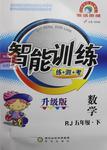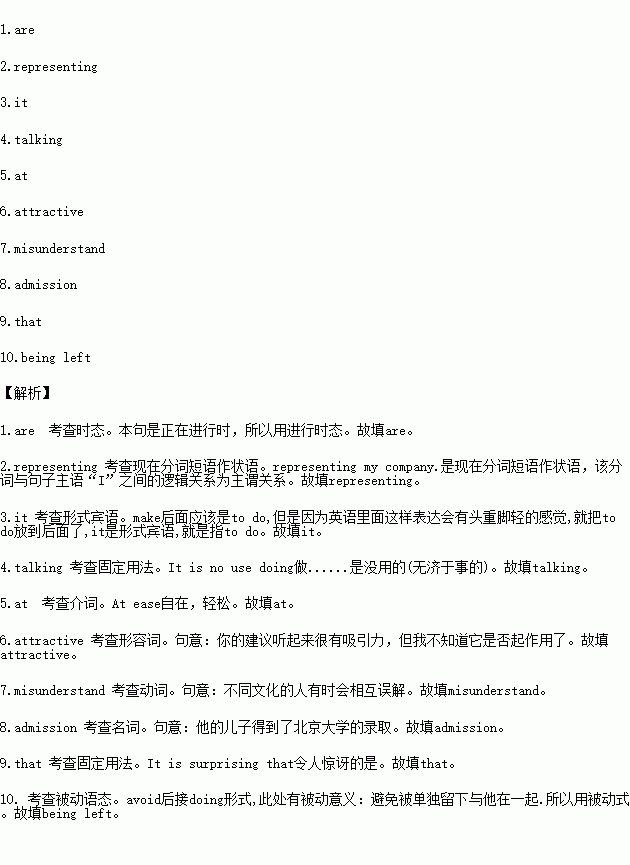题目内容
语法填空,阅读下面材料,在空白处填入适当的内容(不多于1个单词)或括号内单词的正确形式。
1.The family _________ (be) sitting at the breakfast table.
2.I attended the trade talks _________ (represent) my company.
3.It was the teacher who made _________ possible that I went to college.
4.It is no use __________ (talk) with a person like him.
5.With our work done, we felt much _________ ease.
6.Your proposal sounds very _________ (attract), but I wonder if it works.
7.People from different cultures may sometimes _________ (understand) each other.
8.His son has got the _________ (admit) to the Beijing University.
9.It is surprising _________ he came late to school this morning.
10.I find it hard to get along with Miss Anderson, and therefore I always avoid _________ (leave) alone together with him.
 互动课堂系列答案
互动课堂系列答案 激活思维智能训练课时导学练系列答案
激活思维智能训练课时导学练系列答案
